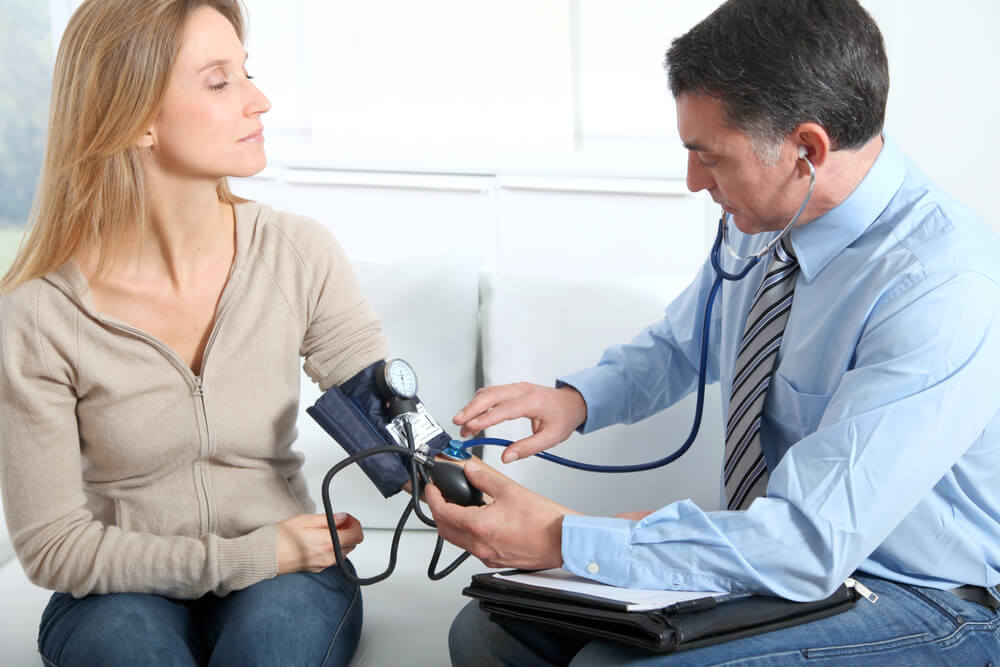According to the Centers for Disease Control (CDC), heart disease is the leading cause of death for women in the United States.
This means one in every four female deaths can be attributed to heart disease, yet in most cases it is a preventable disease. Roughly about the same number of women and men are dying of heart disease which means we shouldn’t write heart disease off as just a men’s issue.
Read More: Learn More about the Support L-arginine Plus® can give to the heart
However, interestingly enough, the CDC says that only 54% of women actually recognize this fact.
What is heart disease?
Heart disease or cardiovascular disease is a range of conditions that affect the health of the heart. Heart disease can include blood vessel diseases, heart rythm problems, heart defects, and other diseases that damage the heart.
“Heart disease is most commonly due to blockages in the arteries, which is known as atherosclerosis,” says Suzanne Steinbaum, D.O., Director of women’s heart health at the Heart and Vascular Institute at Lenox Hill Hospital in New York. “But there are four parts to the heart, and heart disease could be a problem with any of them,” she says.
Apart from the arteries, there are the heart’s valves, which could be tight or leaky. Then there’s the electric system, which could cause your heart to beat too fast, too slow, or have extra beats. Finally, there’s the myocardium (heart muscle) and pericardium (lining of the heart), which could become inflamed, too thick, or too thin, she says.
Some women might never notice their heart disease symptoms until they’ve suffered a heart attack or stroke, Steinbaum says. Many don’t even know what to look for to take action before something more serious does happen.
What are the signs of heart disease in women?
1. Shortness of breath
Getting short of breath after you’ve climbed stairs or walked a short distance is a sign either you need to exercise more frequently or it could be a sign of heart disease.
In people with heart disease, the heart struggles to deliver oxygen where it needs to go. The result is that you often feel like you can’t quite catch your breath and/or feel lightheaded.
Shortness of breath that worsens when lying down and improves when propping up is a definite sign that should be checked out. As heart disease progresses, breathing problems can worsen to the point that lying flat in bed isn’t even an option. This is the point when you definitely need to see a doctor if you haven’t already.
2. Chest pain and discomfort
Chest pain or discomfort, also known as angina, is one of the most common heart disease symptoms. This is your heart signaling you that it’s not getting enough oxygen.
It may feel like a squeezing sensation or heavy pressure on top of your chest. If you are feeling some discomfort you should head to the doctor immediately. However, if you are experiencing pain you should head straight to the emergency room.
3. Excessive or unexplained sweating
If you suddenly and often sweat without exertion, you should keep an eye on this symptom. If you are experiencing this in conjunction with chest pain/discomfort, then go see the doctor. If you have a cold, clammy feeling when sweating when there is no real cause for stress, this can also be a sign of potential heart issues.
4. Various body aches and pain
Some women with heart disease don’t experience pain in their chests at all. Instead, they experience pain in their abdomens, the left, lower side of their jaw, neck or pain in either arm–not just the left arm like many men. Often the pain comes on quickly and is not due to any physical exertion. This sudden pain can sometimes wake you up at night.
5. Loss of feeling
Along with pain or coldness, numbness and weakness in the arms or legs can be a sign that your extremities aren’t getting the flow of blood and oxygen they need. If there’s no other reason for the pain or sensation, it may be your heart, so see your doctor as soon as you can.
6. Heart palpitations
Have you ever felt your heart flutter? This is a heart palpitation, or an arrhythmia. It means that your heart is beating too quickly or irregularly. In people with heart disease, palpitations can point to issues with the heart’s valves or its electric system. However, palpitations aren’t always a symptom of heart disease. Sometimes they can be attributed to drinking too much caffeine or alcohol, being dehydrated, or stressed.
If your palpitations last for more than a few minutes or they are accompanied by other symptoms on this list, you should immediately see a doctor.
7. Unusual fatigue
Like many women, you’re probably very busy so it’s normal that you’re tired a lot of the time. However, you should pay attention to these signs of fatigue:
- you are suddenly worn out after your typical exercise routine
- doing a simple activity like making the bed or climbing a few stairs makes you excessively tired
- you are consistently experiencing restless sleep
8. Stomach issues
In some women heart problems can feel like indigestion. Also, if you are nauseous or vomiting with no other explanation along with any of the other symptoms above, set up an appointment with your doctor to discuss.

